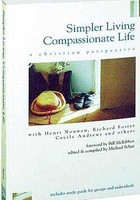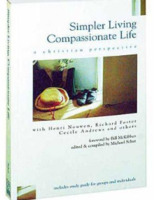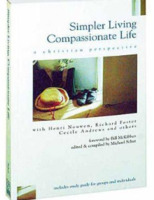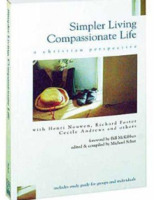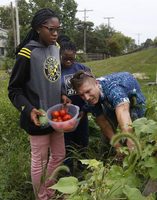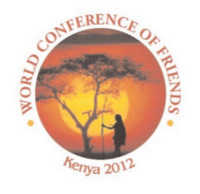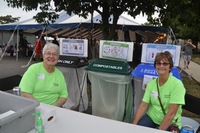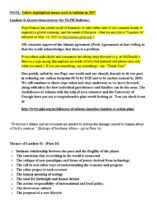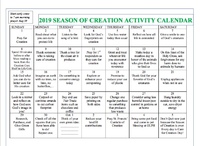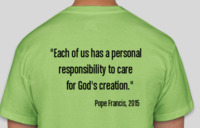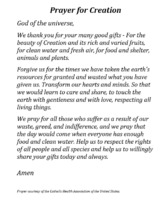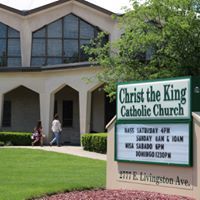Search
60 items
-
“Worldviews” in Simpler Living, Compassionate Life
Simpler Living, Compassionate Life, is a book from Earth Ministries that consists of both essays and community guides regarding humanity’s relationship to our earthly home. This section, "Worldviews," takes a close looks at what has led humans to treat the earth so poorly. It highlights various ways of viewing and comprehending the world around us, especially in the West. It offers that ideas such as dualism have been toxic to our understanding of the world and our relationship to it. -
"Theology in Support of Simplicity and Eco-Justice" in Simpler Living, Compassionate Life
Simpler Living, Compassionate Life, is a book from Earth Ministries that consists of both essays and community guides regarding humanity’s relationship to our earthly home. This section, "Theology in Support of Simplicity and Eco-Justice," captures the Biblical and faith inspired foundation of the movement toward simplicity. It encourages those who are participants in a culture of over-consumption to reconsider their lifestyles and reverse the damage done to the gift that we have received. -
“Simplicity is Nothing New” in Simpler Living, Compassionate Life
Simpler Living, Compassionate Life, is a book from Earth Ministries that consists of both essays and community guides regarding humanity’s relationship to our earthly home. This section, "Simplicity is Nothing New," looks back to ways that the Holy Spirit has inspired simplicity in the lives of Christians through the ages. It provides a framework for the 21st century pursuit of simplicity in American and Christian history. -
"Social Structures and the Politics of Simplicity" in Simpler Living, Compassionate Life
Simpler Living, Compassionate Life, is a book from Earth Ministries that consists of both essays and community guides regarding humanity’s relationship to our earthly home. This section, "Social Structures and the Politics of Simplicity," looks at systems in society that perpetuate and encourage over-consumption. From theology to capitalism to advertising, authors call out ways in which we have built our world for destruction. It focuses not only on personal choices, but the necessity of engaged politics and policy. For the full version Moriah Reichert's review of this section of the book, visit the link below. -
Season of Creation Week 1: A Culture of Relationships That Heals our Throwaway Culture
For each week of the Season of Creation, the World Council of Churches offers a resource for celebrating creation. The first week focuses on the throwaway culture that society has created and urges individuals to instead focus on just and sustainable practices. The document includes a call to prayer, a scripture reading, a hymn, and a responsive reflection. -
Faith Based Farms
Faith Based Farms is a webinar about families and communities from across the United States demonstrating their faith through farming. Colm Flynn, a freelance reporter, conducted his research by traveling from New Jersey, to Wisconsin, and to Michigan. During his journey, he enjoyed conversations with a range of diverse individuals and faith-based groups. -
The Villa Farm
The Villa Maria, located in Villa Maria, Pennsylvania, describes itself on their website as the following: "Operating on 759 acres, the farm of Villa Maria Community Center is an integral part of the heritage of the Sisters of the Humility of Mary. The farm serves as a symbol of the struggle and sacrifice of a small group of women who settled on the Lawrence County land in 1864 and succeeded in establishing a viable, productive farm when others before them had failed. Land management at the farm is based on spirituality, sustainability, simplicity and the preservation of all local life systems." The greenhouse is open seasonally along with a produce market that sells the food grown. -
Columbus bonds with Ghana sister city through agriculture project
Roman Catholic Cardinal Peter Turkson spoke at Mershon Auditorium at The Ohio State University in 2015. The proceeds from his talk with OSU President Michael Drake were used as matching funds in a grant from the Initiative for Food and Agricultural Transformation (InFACT) discovery theme program. The proceeds funded an agricultural exchange between Accra, Ghana, and Columbus, Ohio. -
We Are What We Eat
The 214th General Assembly (2002) Presbyterian Church (U.S.A.) approved the following report titled We Are What We Eat. This report focuses on how people can influence the agriculture revolution with regard to sustainability, stewardship compassion, and community. The final section provides suggestions for activities and studies that congregations can engage in with regard to food production/consumption. -
A Quaker Response to the Crisis of Climate Change
A Quaker Response to the Crisis of Climate Change discusses how climate change and consumer waste negatively impacts disadvantage populations the most. The first two paragraphs of the introduction are stated below:
"The crisis of global climate change represents a supreme test of humanity’s collective wisdom and courage. Our immoderate use of the Earth’s resources violates the entire biosphere, threatening the lives of millions of people and the habitats of thousands of species. Many of the poorest people are already suffering a changed climate; they are
asking us all to act.
How has humanity produced this crisis? Our faith response is that prevailing social values have obscured what it means to live authentically on this Earth. In rich European countries we consume more than we need within an economic system that divides us as a society; in much that we do, we cause harm to the planet and each other without enriching our lives." -
The Kabarak Call for Peace and Ecojustice
The Kabarak Call for Peace and Ecojustice, at the World Conference of Friends in 2012, maintains that we live in times in which the Earth can not replenish itself, so we must intervene where we can. In addition, we need to look out for our fellow humans, especially those who are less fortunate than us. The following paragraph provides the introduction to the text:
"In past times God’s Creation restored itself. Now humanity dominates, our growing population consuming more resources than nature can replace. We must change, we must become careful stewards of all life. Earthcare unites traditional Quaker testimonies: peace, equality, simplicity, love, integrity, and justice. Jesus said, 'As you have done unto the least… you have done unto me'. We are called to work for the peaceable Kingdom of God on the whole earth, in right sharing with all peoples. However few our numbers, we are called to be the salt that flavours and preserves, to be a light in the darkness of greed and destruction."
-
Going Vegan for Lent can Orient us towards Christ's calling
Elyse Durham writes that it is becoming increasingly common for people to give up meat for lent, and makes note that many of the farming practices we use today are unnecessarily cruel. In addition, the consumer culture in America tempts Christians to live lives of greed instead of virtue. Karen Swallow brings up the idea of "reducetarianism," simply considering the amount of meat you consume and its implications for the environment. Fasts and veganism are suggestions for Christians who want to move away from a life of over-consumption. -
Engaged Organizations: Lake Erie Institute
Lake Erie Institute (LEI) is an environmental education organization that was formed through world visions of forward thinking environmentalists, activists, ecological leaders and educators. Over the years, they have designed workshops, retreats, and professional training programs that empower participants to become leaders to engage in re-visioning their own lives, other organizations, communities, and the world. Their offerings provide opportunities for individuals to connect more deeply with one's true self, by strengthening their ties to the Earth and relationships with others in order live more whole, healthy, and harmonious lives. -
Profile: Rev. Dr. Heber M Brown
Rev. Dr. Heber M. Brown is a Baptist pastor in Baltimore, Maryland. Brown is committed to social development and has been instrumental in the creation of several programs in the Baltimore area. These include Orita’s Cross Freedom School, of which he is the founding director, and the Black Church Food Security Network. The latter works to support the accessibility of food by linking historically African American congregations with urban growers and Black farmers. Brown has received a number of awards recognizing his work, including the Ella Baker Freedom Fighter Award and the Food Justice Award from the Baltimore City Office of Civil Rights. -
Religion and Environment Songs: Connect to Nature (Beatrice Dossah) music video
From the YouTube video description: "The Song, '' Connect to nature' talks about connecting children to nature using creative medium such as the arts.
The song is part of a research work by Beatrice Dossah with sponsorship from the United Nations University Land Restoration Training Programme in Iceland. The research work was supervised by Dr. Ellen Gunnarsdottir and Dr. Ásthildur Björg Jónsdóttir of the Iceland Academy of Arts." -
Congregational Profile: Our Lady of Perpetual Help, Grove City, OH: How it began in one parish
In 2016, prompted by Pope Francis’ encyclical “Laudato Si,” we at Our Lady of Perpetual Help Parish in Grove City, Ohio, held two 8-week sessions of discussions on the encyclical and at the end of the second session, our pastor, Fr. Daniel J. Millisor, appointed the discussion leader, Sister Nancy Miller, OSF as chairperson and called together a team to explore how the parish might lower our carbon footprint. The Creation Care Council (CCC) of our parish meets monthly for prayer, discussion and action in response to Laudato Si’s call for greater care for our common home.
We conducted a parish survey, with the intention of enhancing awareness among parishioners, as well as to determine if, and how, members were already incorporating recycling and composting into their daily lives. The results were highly, though not entirely, favorable. In addition to regularly inserting information and suggestions into our parish bulletins, taking the CCC members to tour a landfill, recycling plant, and the OSU Byrd Polar Research Center, we requested that all committees at the parish look at ways to reduce or eliminate their use of Styrofoam dinnerware. Rather than condemn polluters, we wrote thank you notes to businesses that showed environmental stewardship. We began annually purchasing and giving away seedling trees to plant on Earth Day. We took on trying to improve parish recycling efforts – providing new recycling containers for all parish offices, inviting a local official – an environmental expert – to explain to us what is and is not recyclable, preparing an interactive recycling quiz at the parish festival, and then attempting to bring recycling to the parish picnic and festival.
The efforts to incorporate recycling in parish events “failed” the first year, but we got it right the second year and this (the third) year, we successfully introduced food waste composting to Lenten Parish Fish Fry dinners, the Parish Picnic, and our largest parish event of the year: the Parish Festival. The 2019 Parish Festival served an estimated 5,000 meals, working with food vendors to increase their ability to serve compostable dishware and cutlery. In total, the CCC was able to divert 2,704 gallons of waste from the local landfill, which constituted 86% of all waste at the Festival.
We also exceeded all expectations in soliciting nearly 100 volunteers to help teach and monitor correct depositing of these materials - without tapping the usual volunteer corps that was still needed to keep the regular parts of the festival going. With the support of our pastor and dedicated CCC members, we’ve come a long way, and still feel like we have only just begun!
-
Church Bulletin Insert quotes from Laudato Si' (one year's worth)
This resource is a Word document containing a year's worth of quotes from Laudato Si' (the Pope's encyclical letter about the environment) for use in a church bulletin. This file was created by the Creation Care Council of Our Lady of Perpetual Help in Grove City, OH, and submitted to their church bulletin editor. The result is that each weekly bulletin for the church services contains a quote related to creation care, which keeps the teaching of Laudato Si' current on a weekly basis. By creating a single file with enough quotes for a year, the CCC provided the bulletin editor with easily accessible material, requiring a minimum of follow-up time and energy. -
Season of Creation Daily Devotion Calendar
A daily calendar of actions, reflections, meditations and ideas for creation care during the Season of Creation, which runs from Sept. 1 until Oct. 5. This calendar was created by members of Our Lady of Perpetual Help in Grove City, OH, and can be readily adapted for use by others. The creators suggest editing the activities for Sept. 8 and Oct. 4, which are specific to options in their own community. -
Creation Care t-shirt designed by the Creation Care Council of Our Lady of Perpetual Help (OLPH)
These t-shirts with a quote from Pope Francis's encyclical Laudato Si' were created for members of the Creation Care Council of OLPH to wear at creation care events sponsored by their church. -
Resources for Preaching: On Caring for God's Creation
Resources for Preaching: On Caring for God's Creation offers that one does not need to be an expert in the field to preach about environmental justice. The authors encourage homilists to focus on what they know, what's around them, and what can be learned relatively easily. One example is to draw upon surrounding physical beauty or examine what is being destroyed in the area. This resource provides an outline of pertinent themes that can lead to future discussions, as well as opportunities to incorporate crucial eco-friendly messages into parishioners daily lives. -
Prayer for Creation
This Prayer for Creation reminds us to give thanks for the basics of living that nature provides us and to ask for forgiveness for the times that we have taken the Earth's resources for granted. It is also a reminder that the vulnerable often do not even have regular access to clean food and/or water. -
Bishop Hartley High School, Columbus, OH
Bishop Hartley has assembled a Care 4 Creation faculty committee, which focuses on long-term plans at the school. There is also a Care 4 Creation Association, which is for students and is also student-led. Instructors Rick Kohut and Ann Hawk have spearheaded some of the more long-term creation care projects there. Each have set up a vermicomposting bin in their classrooms, offering that it works well and is relatively low maintenance. Students from one of Rick’s classes had worked on a project where they created a poster/chart with pictures of endangered animals. Some of the students from Rick's classes engaged in the school's climate strike. One highly motivated student, Jamal, wrote a letter about the event which he sent to local politicians. Ann has been attending a yearly AEP Ohio energy efficiency program, and they in turn provide her with free energy savings kits for each of her students. AEP also offers energy saving kits for residential customers who are willing to complete their online Home Energy Profile. In addition, two new drinking fountains are about to be installed at the school that are designed to fill reusable water bottles. The school is also in the process of creating water bottles for sale with their school’s logo on them. The intent is to cut down on students and faculty purchasing and bringing in individual plastic bottles of water.
-
Engaged Organizations: The Catholic Foundation of Ohio - Columbus
The Catholic Foundation of Columbus, Ohio is designed to be responsive to interests that come from within the diocesan parishes and schools. To the extent that those interests have included creation care work, there has been grant activity. Dan Kurth, Director of Grants for the Catholic Foundation, offers that the foundation’s rubric for creation care initiatives is essentially: Does this project have any green energy sustainability pieces to it? The energy efficiency component of the foundation’s responsive grants is the main integration of a Laudato Si' principle into the foundation's grant work. As the Laudato Si encyclical has grown in awareness, more funding has become available as energy efficiency-related projects have become more commonplace over time.
The foundation has recently partnered with the Columbus Catholic Diocese on their Diocean Loan LED program, which has had considerable impact on diocesan savings. In addition, the foundation encourages schools to establish their own maintenance reserve funds in order to maintain more efficient operations. Specifically, there is a push to have schools and parishes upgrade their boilers, change over to LED lighting, and replace their windows with more efficient ones. -
Engaged Organizations: Christ the King Catholic Church, Columbus, OH
Jason Cervenec, Education and Outreach Director for OSU's Byrd Polar and Climate Research Center, has helped plan and carry out a number of initiatives for events and projects at Christ the King Catholic Church over the past few years. With the assistance of Deb Steele, the Volunteer Coordinator for Ohio Interfaith Power and Light (Ohio IPL), Jason has organized energy audits that were conducted by Ohio IPL programming and support. The LED retrofit with diocese Facility Director, Bruce Boyan, has been a noteworthy achievement at the parish as well. Additional energy efficient projects have included window replacement (also with Bruce) and the installation of an HVAC system. While the parish center is currently undergoing renovation work, Jason and other parishioners have reviewed the plans to look for additional efficiency and sustainability improvements. Recently, Jason had designed creation care bulletin inserts, with feedback from the Creation Care team at the Columbus Catholic Diocese, that have been widely circulate around town. The annual creation care information program that Jason initiated has garnered substantial support, with roughly 30 people in attendance each time. An additional work in progress project includes the installation of a bike rack station outside of the parish. -
Engaged Organizations: Springs Dominican motherhouse, Columbus, OH
The Springs Dominican motherhouse hosts 150 individuals (maintaining 76 beds). Initial green projects included replacing their lights with LED bulbs and replacing seven boilers, which had been there since the 1940s, with just one new one. Recently, Innovative Organic Recycling composting company had been invited to speak with house members, and their composting program took off from there. Jean Sylvester, Motherhouse Administrator, had found it easy to do at her own house and was also aware of Shepherd’s Corner success with it. Both staff and residents adapted quickly and the process is streamlined at this point. Composting is done by the sisters themselves, with administration providing the bags and cans. In addition to composting food, even the bones, all of plates and cups, including coffee cups, can be composted as well.
For administration, this is a business model that makes practical sense. Management had been quoted at $35 per pick up, so they decided to give it a two-week trial period. Overall, composting has been a "win-win" for them, with its ease of implementation and minimal ongoing efforts. In addition, their dock smells better because the food waste bags are not left open in the dumpster now. There is also less garbage for RUMPKE to take, so the project cost savings of waste management will be reaped over time .

